June 18, 2023
Picture two possible futures for your grandchildren…
In one future, they’re thriving – living close to nature, with vibrant healthy bodies and agile minds, raising their own self-actualizing kids with purpose and principles.
In the other, they’re scrolling through endless entertainment – hooked up to virtual reality and an IV drip, raising their kids to end up the same way.
I am not typically a creature of angst, yet if there are questions that keep me awake at night, it's these: Am I a good parent? Am I paying attention? And moreso, am I paying attention to the right things?
Based on my conversations with many, many fellow parents, it seems they share common worries such as whether their kids will get into a good college, how they might handle drugs and alcohol, and if they’ll be able to manage their finances independently. Right now, my primary concern (and now I know I'm not alone in it) is that my kids – and their kids – will dull their minds with mindless technology or choose a path in life laid out for them by someone else.
You see, this goes beyond raising my twin 15-year-old boys right.
I'm thinking about my grandchildren and their grandchildren. I'm thinking about legacy.
Everything you do as a parent is exponentially magnified in future generations. Every daily habit you implement eventually stacks up to become your offspring's entire childhood experience, which then magnifies further to become their children's experiences.
Only you can decide if those habits are of conviction and good example, or of technology-laden distractibility and lack of direction. The latest studies show that teenagers spend more than seven hours in front of screens each day (where do you think they learned that from?). Advanced virtual reality and other technologies have heightened the risk of children wasting their lives away glued to a screen. One response to the flood of new technology and dangers is to set strict rules around usage, another is to move to the woods: no tech, off the grid! But plenty of parents have found that artificial limits don't work – constant monitoring and helicopter-style parenting falls apart quickly and can all-too-easily breed resentment. So, what's the alternative?
I believe the most important way to guide your kids is by modeling good behavior yourself: Put the phone down!
Easier said than done. Most parents, myself included, are in need of better role models when it comes to the “how” to lead by example.
This is why I embarked on a personal journey to create the ultimate parenting manual. That labor of love culminated as my latest book, Boundless Parenting. For the last three years, I sought the expertise of a remarkable group of parenting superstars to discover how they raise impactful, happy, successful, and resilient children.
And here I'd like to share some of the key concepts that have become my own strategies when it comes to parenting, starting with Love and Logic.
Love and Logic: My Own Approach to Parenting
Though I can’t predict what’s to come, at 15 years of age, my sons River and Terran seem to be thriving.
Does that mean I have all the answers? Let me clearly say, “Nope!”
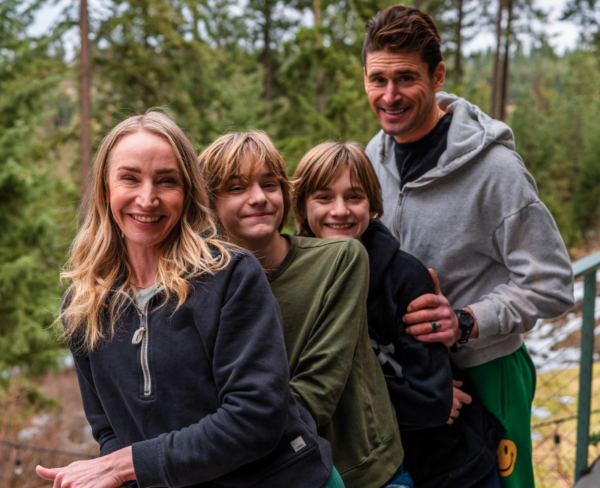 Nor do I take personal credit for the approach I've taken, as it stands on the shoulders of many and is in no way particularly unique. So why have our sons thrived?
Nor do I take personal credit for the approach I've taken, as it stands on the shoulders of many and is in no way particularly unique. So why have our sons thrived?
After much reflection, I believe our success comes from being based on deep principles any parent can use: faith in God, pouring on love, identifying emotions, planning family time, valuing hard work, bonding with nature, and self-directed learning. What I found so interesting is that these were also themes that came up over and over in the interviews for Boundless Parenting.
The closest thing I have to a “parenting style” comes from the book Parenting with Love and Logic, by Foster Kline.
This philosophy encourages educating children about the consequences of their decisions, letting them make their own mistakes, and learning from the natural consequences.
It emphasizes respect for the child and love and empathy from the parent and is the clear opposite of overprotective parenting, which can negatively affect children's motivation and learning.
The Sámi tribes of the Arctic served as the model for this approach. They expect their kids to make their own decisions and face the consequences, The secret of Arctic survival parenting is that adults don't do everything for their children, and kids are given time to think and express their opinions. In the summer during the bright arctic nights, it's normal for the Sámi children, 12 years old or so, to go fishing with their friends overnight and come home in the early morning hours.
Sámi pedagogics emphasizes autonomy. Unlike Western child-centered parenting, adults don't give tasks or assignments but rather allow children the freedom to choose their hobbies, food, and sleeping cycles. Adults rarely set strict boundaries or give commands.
A common saying among Sámi parents translates roughly to, “You know it yourself.” They may say this phrase when a child insists on going out into the cold wearing light clothing: the child will discover for themselves whether they made a good choice once they're freezing.
Guided by these philosophies, Jessa and I have very few non-negotiable rules at home.
There are no limits on screen time.
No bans on food.
No strictly enforced bedtimes.
No direct punishment for things like poor grades or procrastination.
Instead, we educate our sons on the consequences of the decisions they might make in life, then step back and allow them to deal with those consequences. Usually, the consequences themselves serve as plenty adequate rewards or punishments. We also structure a home environment that is conducive to healthy choices. For example, the cupboards are stocked with great-tasting, healthy food and we regularly organize fun activities for the kids to draw them away from their screens.
Throughout the chapters that Jessa and I wrote for Boundless Parenting, we give specific illustrations of how this plays out in our home. Here's our stance on sugary treats, taken directly from the book:
“Rather than telling our sons they can’t eat cake at their friend’s birthday party, we teach them about the potential inflammatory effects of sugar and gluten on the digestive system, the lifespan and healthspan benefits of modulating consumption of sweets, carbohydrates, and gluten, and the existence of supplements that can control blood sugar or pre-digest gluten in the gastrointestinal tract. So, when presented with a cornucopia of cupcakes at a birthday party, they’ll often partake, but in moderation, usually paired with physical activity and chased with some kind of gluten-digesting supplement, such as “dipeptidyl peptidase” (we use “Gluten Guardian” by BiOptimizers). Our sons are free to eat as much cake as they’d like. It’s completely their decision, and they can deal with any gut upset, eczema, acne, or other biological consequences that occur as a result of their choices.”
Love and logic is fundamentally about promoting autonomy by leading through education and example, and then trusting your kids to learn from the direct consequences of their actions rather than by controlling them through micro-management.
Instead of controlling their every move, you can instead focus on principles for your children to emulate by witnessing rather than by forced adherence.
And if you combine logic with the next step, you'll have that much more time to lead by example.
Outsourced Parenting
One of the main themes of the Greenfield household is the use of outsourcing to help make parenting easier.
It may seem unrelated that I have virtual assistants who manage my email, and a groundskeeper who takes care of house repairs and even makes my probiotic L. Reuteri yogurt (as described in my podcast with Dr. William Davis, author of Wheat Belly).
But think about it for a minute. Parenting is one of the most involved experiences of your life, and even if you can take just one thing off your plate through outsourcing, there will be a massive return on investment. Even if you can't afford paid assistance, it's worth trying.
Can you find an unpaid intern to help with your work?
Maybe a childless aunt who is happy to help drive kids around?
Also, consider what opening up some of your own time is worth.
Are you a better, healthier parent if you can hit the gym twice a week instead of cooking dinner?
Can you get more work done faster?
The more you delegate, the more you can be present for your kids. As Gary Keller recommends in his book, The ONE Thing: The Surprisingly Simple Truth About Extraordinary Results, I focus on the one thing that I do best which ends up being the more productive use of my finite time.
Adopting the Love and Logic approach, helping River and Terran cultivate autonomy, and creating an environment that encourages healthy choices are integral to my parenting philosophy. Moreover, recognizing the value of outsourcing certain parenting tasks has allowed us to devote more quality time to our children.
These combined insights and experiences provide the foundation for raising my kids.
Unschooling: Balancing Structure with Autonomy
Building upon the Love and Logic principles of autonomy, the Greenfield approach to education naturally led me and Jessa to study unschooling as a means of balancing structure with the freedom to learn and grow.
We considered homeschooling our twin sons, but found that most models just replicate the inherent flaws of traditional education – using an industrial-era model to create “good little factory workers.” This approach doesn’t foster free thinking, curiosity, or the resilience needed for today's world.
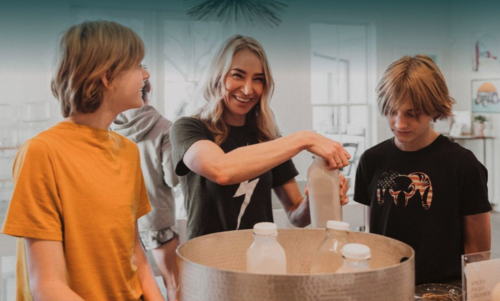 Read Ivan Illich’s book, Deschooling Society, and you will see how modern education is little more than an indoctrination program that's been used to form a kind of international caste system. Universities are now recruiting centers for the personnel of the consumer society.
Read Ivan Illich’s book, Deschooling Society, and you will see how modern education is little more than an indoctrination program that's been used to form a kind of international caste system. Universities are now recruiting centers for the personnel of the consumer society.
So, we chose to “unschool” our sons.
Or rather, we gave them a choice, and they chose unschooling.
Unschooling, or self-directed education, involves paying attention to a child's passions and surrounding them with resources, friends, tutors, tools, and real-life experiences to pursue those interests in an immersive way.
We balance this freedom by devoting each three-month block of time to specific topics they want to explore in depth. Current subjects include cryptocurrency, finance, non-profits, writing, hydroponics, and beekeeping. Each unschooling day differs but may include: hours of free play, chores like milking goats, scheduled activities like jiu-jitsu, time with tutors, workouts, meditation, and meals.
While we were setting up this system, we relied heavily on a book called Unschooling to University by Judy Arnall. Later, I had Judy on my podcast for the episode “The Ultimate Guide To Unschooling: Top Tips To Create Free-Thinking, Resilient, Creative Young Humans Who Can Thrive In A Modern World,” which, as the name suggests, is a wealth of information on unschooling.
Required core subjects are incorporated through real-world learning experiences, and we track progress to meet state requirements. As we set up our learning environment, I would like to acknowledge Naval Ravikant, a modern-day philosopher and prolific author who has astutely observed that regardless of the profession one chooses to pursue, a person will be well-prepared for almost any career if they have a strong understanding and proficiency in these five key areas:
- Writing – expressing thoughts clearly in all forms
- Reading – quickly understanding all media
- Arithmetic – applying numbers for shortcuts and predictions
- Logic – using reason to understand people and interact with technology
- Rhetoric – creating and conveying compelling arguments
For more insights from Naval, check out his book, The Almanac of Naval Ravikant.
When our sons reach college age, they will again have a choice about their education.
Right now, they say they want a liberal arts degree. While I’m not a huge fan of the average American University system model (going into debt to party for four years), I believe that a well-constructed classical liberal arts education is valid. It involves an understanding of human nature, theology, literature, languages, history, philosophy, rhetoric, logic, music, mathematics, and science, and includes an understanding of how these various disciplines interact.
A well-rounded education for children can help young people understand who they are and where they've been, and how they adjust to new situations and shed light on current events.
Rituals Over Rules: The Binding Glue for Lasting Legacies
While unschooling allows our sons to self-direct and develop their unique interests, Jessa and I have discovered that rituals and traditions provide a vital sense of belonging that complement their educational journey.
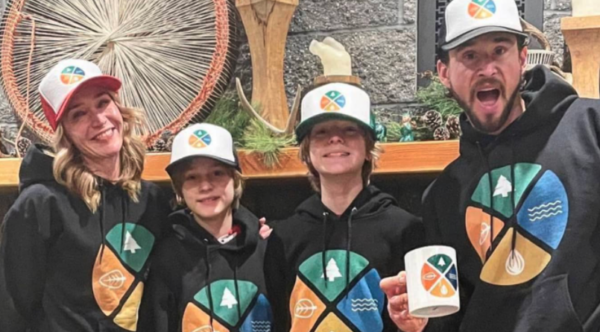 These rituals offer predictability and safety, allowing our boys independence within carefully-designed structures. Rather than “helicopter parenting” or harsh rules, we create these traditions as the glue binding our family together.
These rituals offer predictability and safety, allowing our boys independence within carefully-designed structures. Rather than “helicopter parenting” or harsh rules, we create these traditions as the glue binding our family together.
After working with family branding expert Rich Christiansen, co-founder of Legado Family and Boundless Parenting contributor, we identified core values and created traditions to pass those values on to future generations. We now have a “family playbook,” mission statement, crest, and logo. Our experience working with Rich was so impactful that I invited him to my podcast (listen here) and collaborated on an article in which Rich walks through the foundation of the Legado Family method of legacy-building (read here).
We have established many family rituals and traditions to strengthen our bond and pass on core values, including:
- Daily meditation, prayer, and journaling
- Evening storytelling and music
- Regular family dinners, discussions, and games
- Frequent dinner parties and date nights
- Weekly racket sports and physical activities
- Participating in cooking classes, escape rooms, and breathwork when traveling
- Holiday traditions like advent calendars, lantern releasing, and smoking a turkey
- Rites of passage to mark important life transitions for our sons at different ages
(Jessa and I can both *tell* you many more details about our family rituals and routines if you listen to our chapters in the Boundless Parenting audiobook.)
In the book, I also responded to the same set of questions that I asked of all the parents I interviewed. The hardest question for me to answer was about my proudest moment as a parent. With so many to choose from, the one that stood out was my sons' emergence from the most recent rite of passage into adolescence. When they were eight, we began open conversations about sensitive subjects, and at 12, we introduced them to service to others. More recently, Jessa and I dropped our boys in Idaho’s isolated forests for a five-day survival experience. Instructors led them to face fears in the wild, surviving nights alone, sweat lodges, and shelter-building.
We didn’t know what to expect when we came to pick them up. For an hour we sat with other anxious parents, laughing and crying, stealing glances at the treeline the boys would emerge from.
Were they ready? Were we?
Past the trees, we heard chanting and drums. Dirty young men gathered by the fire, giving speeches on facing fears and the old selves they left behind. I broke down crying multiple times and swallowed lump upon lump of pride as I witnessed the tiny babies – who we raised for the previous 13 years – put on an epic display of bravery, independence, and responsibility.
Soon, our sons will embark on a longer wilderness passage, and at age 18, they will take their first steps toward independence by venturing out into the world and becoming financially self-sufficient. You might think it's crazy to leave our kids in the woods for five days or allow them to choose their own path. However, in an era where countless hours are spent mindlessly scrolling on phones or glued to screens, I feel that it would be a missed opportunity not to embrace these moments of growth and self-discovery.
Just like our sons, you don't need to journey into the wilderness alone. You have mentors and communities to guide you.
Through Boundless Parenting, my aim is to provide you with a compass, a survival guide, and a field manual that will support you on your adventure of a lifetime – raising self-actualized and flourishing children.
The book encapsulates insights, strategies, and practical tools that empower you to create an environment where your child's unique potential can unfold and flourish. With your resilience, compassion, and unwavering commitment to nurturing the human spirit, you will shape a future where your children soar to unimaginable heights of fulfillment and purpose.
Do you have questions for me or Jessa about our journey with our sons, Boundless Parenting, or anything else? I'd also love to hear about your parenting challenges and wins. Leave your comments below!


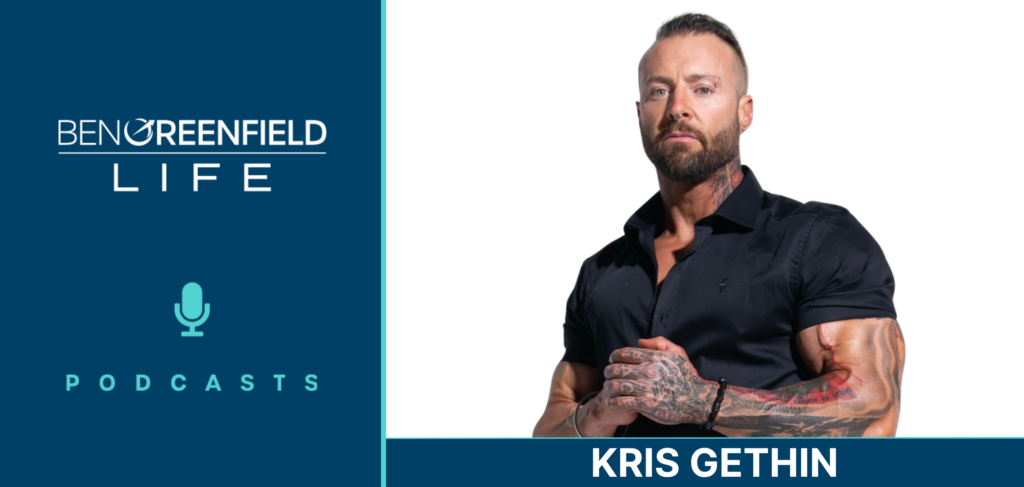
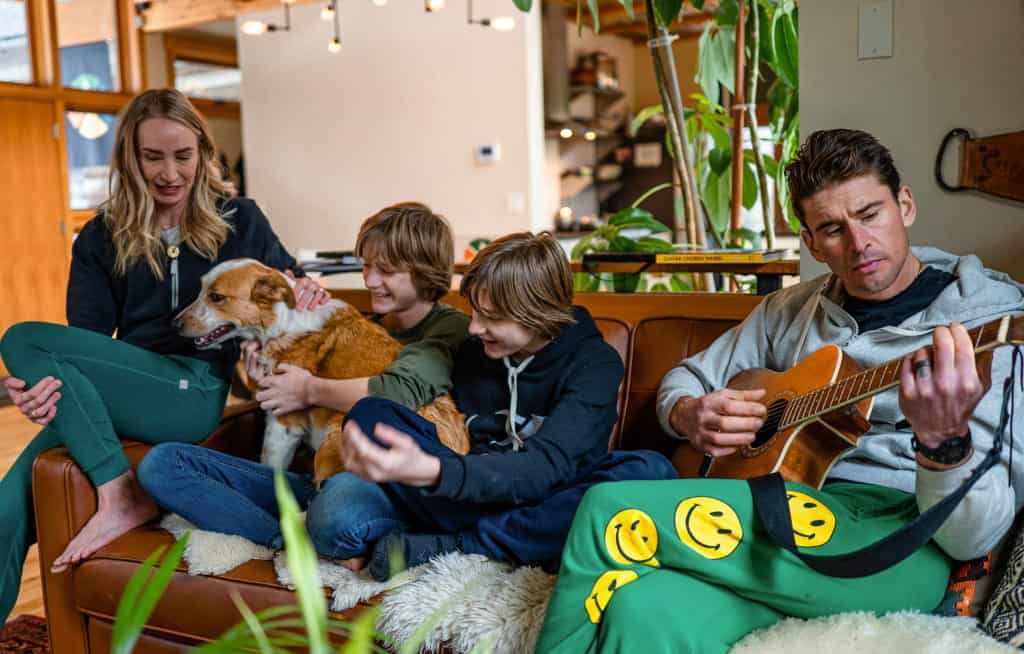

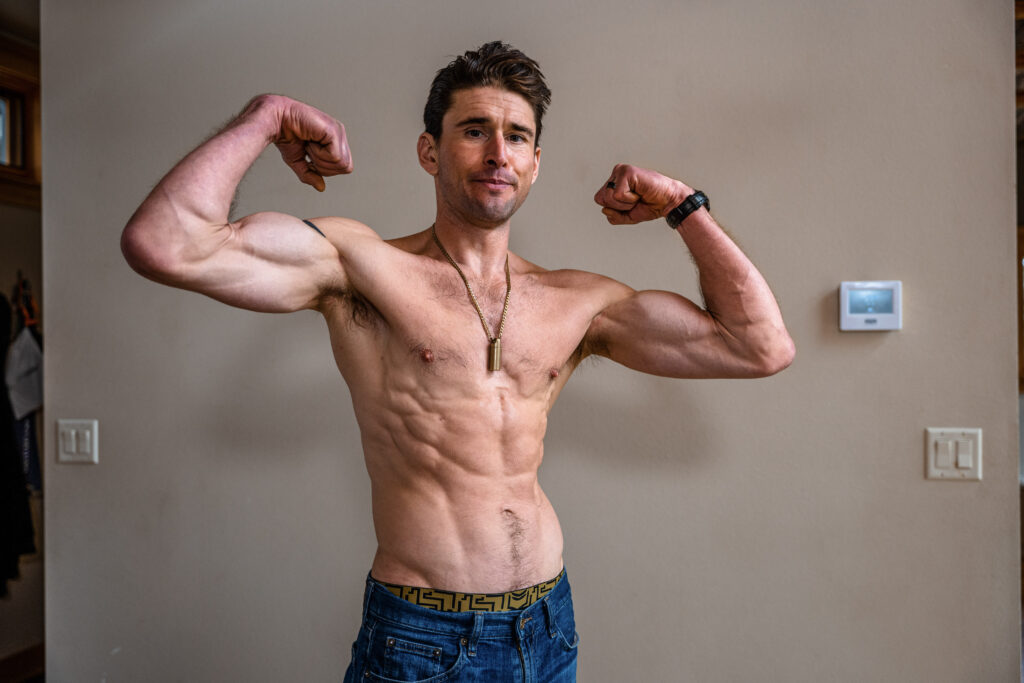


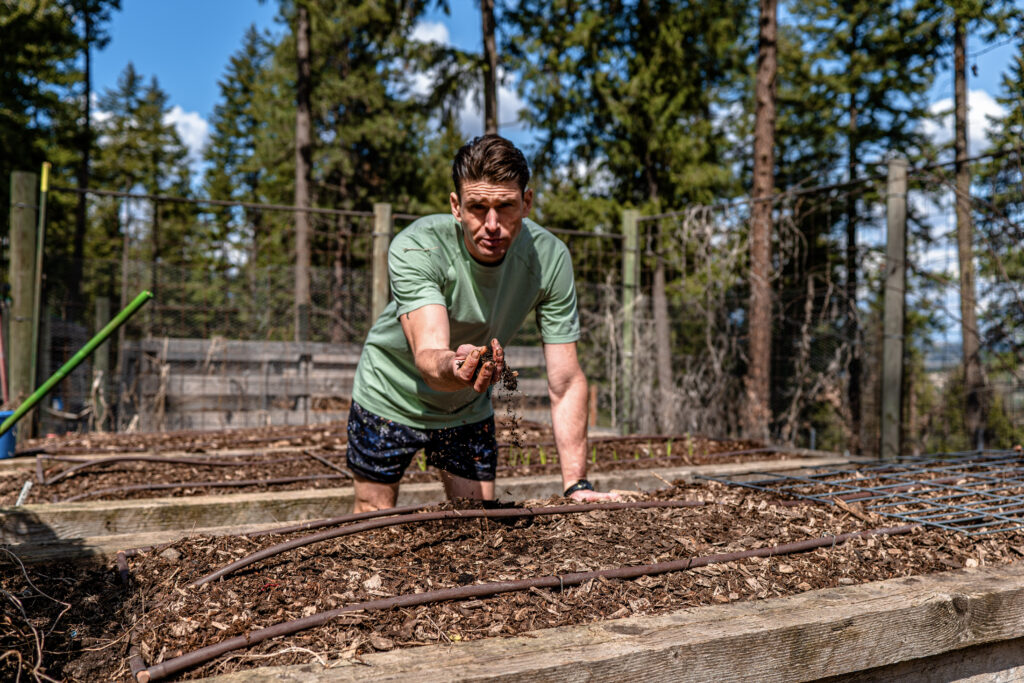



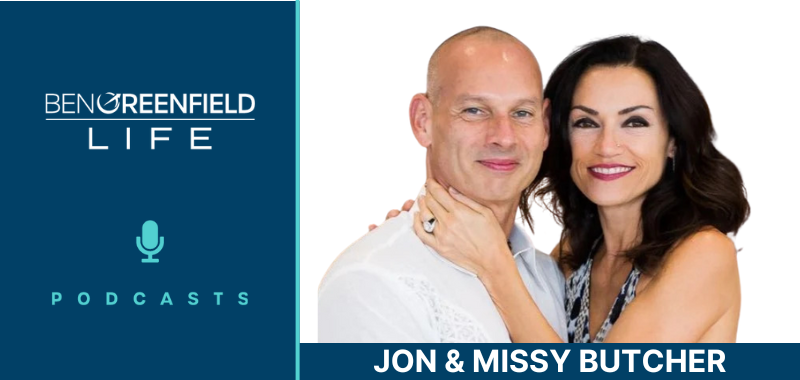

Hey, I have about to receive my second child to the world. Been thinking to incorporate the nightly list of meaningful sentences I have heard Ben is using. Cant find it tough… Please send me as a means of good base to start from.
I have a documentary DVD titled:
For The Next 7 Generations.
It sounds like you will appreciate the very heart-full and mindful message in it.
https://www.filmsforaction.org/watch/for-the-next-7-generations-2009/
My son is only 8 and I feel like I’m failing as a parent… I need help and your book seems to have some guidance that I am needing as a mama.
Since he started school his diet has changed drastically and he has too much screen time. He is now overweight and inactive at only 8 years old, and I worry what effect this is having on his wellbeing now and in the future.
He lights up when I show interest in his gaming but at the same time I don’t want him on it, and I also don’t want him to feel bad about something he enjoys.
How do I get him interested in other things, it’s a real struggle!
I’m a new parent, with my baby having just turned ten months old a few days ago so I’m not expert. However, gaming is one thing that has been on my mind as my wife and I both love to game, but we don’t really want our daughter introduced to that, at least not until she’s older and can choose to play in small amounts. One thing I’ve been doing is searching for board games to play when she’s older, because games do have some positives (communication, creative thinking, etc). That way, we’ll all still get to “play games”, but instead of being on a TV getting frustrated at other people playing, we can be spending time together and growing as a family. Some board games I’ve found that you may want to check out include Mice & Mystics (age 7+), Root (age 10+), Amazing Tales (age 4+), Hero Kids, Wanderhome, Ryuutama, and more. Other than that I would say to figure out what other hobbies he enjoys. For example when I was a kid, I liked video games but actually preferred swimming or doing obstacle courses. I would only play games if it was raining outside.
I know it is hard but just do your best! I sometimes get discouraged with myself if we go a couple of days without reading any books together but life is busy and we have to just try our hardest!
CONGRATULATIONS!! It sounds like you’re on the right track so far, following Ben Greenfield!
3 books I give to all new parents I know:
Memories of Heaven book by Wayne Dyer. Children share astounding recollections of heaven before they were born (to the parents they chose).
Simplicity Parenting by Kim John Payne. Excellent book for every parent at any stage of parenting. There is a book of Waldorf-inspired games to play with children in booklist on his website.
Continuum Concept by Jean Liedloff. Use your paternal and maternal instincts and close body contact during the first 4 years — for healthy attachments all the rest of your years.
Regarding gaming, Waldorf Education says no electronic screens for children until age 14. Waldorf focuses on the spiritual essence of a child, their natural gifts and talents, their natural rhythm, kids have the same teacher in school for 8 years. Schools have gardens and kids help grow the food that they also help harvest and prepare for each other for lunch. Kids learn about all religions and celebrate all holidays. Kids learn a lot about art, music and theater. Kids spend much of the day in nature. Math and reading and writing are taught at the appropriate developmental age, rather than rushed/pushed like in public school. I offered Waldorf-inspired, nature-based, home childcare for 12 years.
I know a lot about screen time too from the perspective of having electrical hyper-sensitivity. (EHS)
(I could write a book!) But they’ve already been written.
Nicholas Carr – author of What the Internet is Doing to Our Brains
Katie Singer – author of Electronic Silent Spring
Ann Louise Gittleman , author of ZAPPED – Why Your Cell Phone Should Not Be Your Alarm Clock
Meghan Owenz, PhD, ScreenFreeParenting.com, author of Spoiled Right – Delaying Screens for Children
Lucy Jo Palladino, PhD, author of Parenting in the Age of Attention-Snatchers
Dr Delany Rushton, creator of Screenagers Documentary – Amazing story about her own children and screen addiction
Dr Victoria Dunklley, Integrative Pychiatrist and author of Reset Your Child’s Brain. A Four-Week Plan to End Meltdowns, Raise Grades, and Boost Social Skills by Reversing the Effects of Electronic Screen-Time
Richard Louv, author of Vitamin N – How to Live a Nature Rich Life
Richard Louv, author of Last Child in the Woods
Blessings!
Love this! I am so glad you are focusing on parenting. One of my inner mottos upon becoming a mother has been …… I might not do it “right” but I absolutely have to do it different!
If we do what they did we will get what we got! And I sure want to see something different in the world!